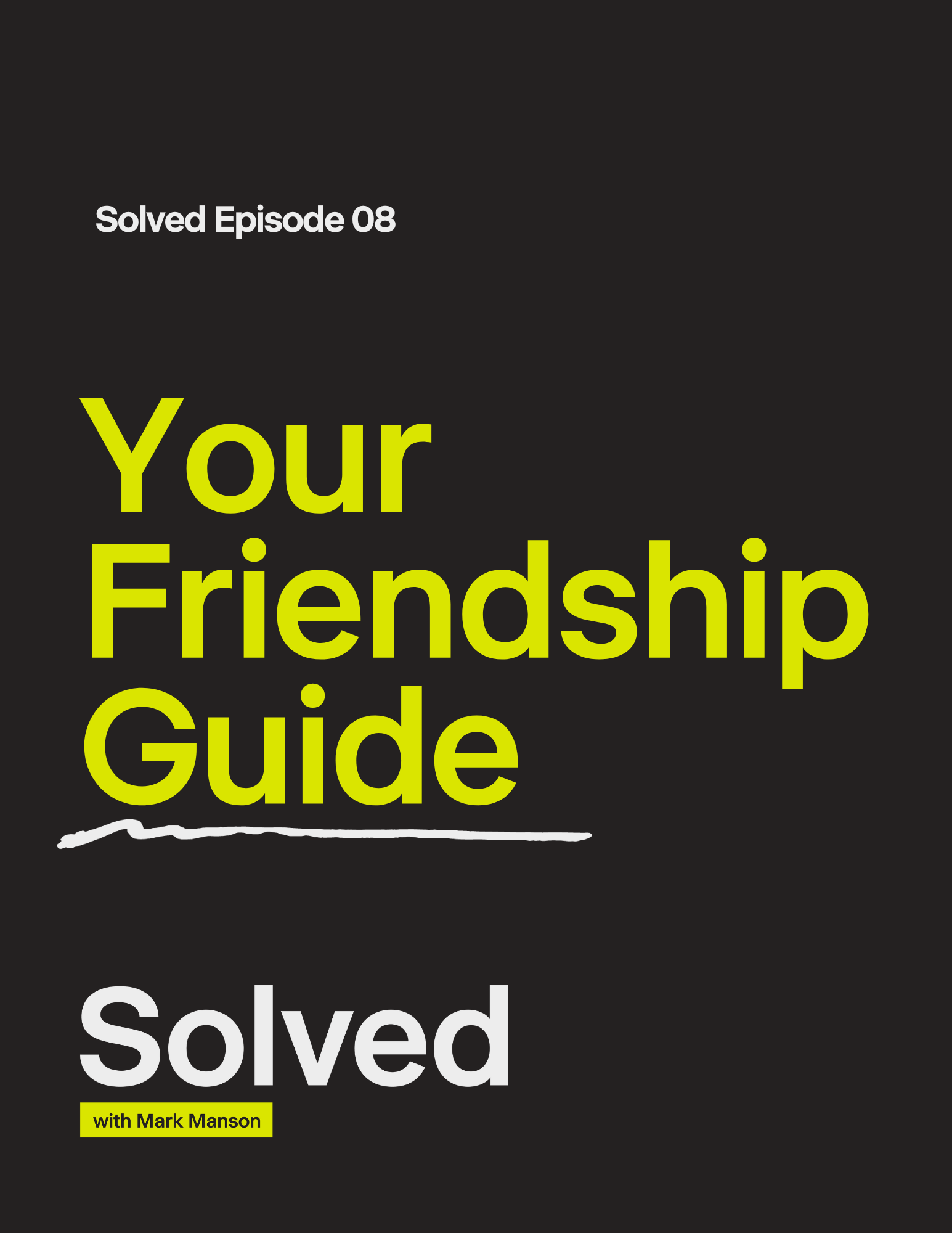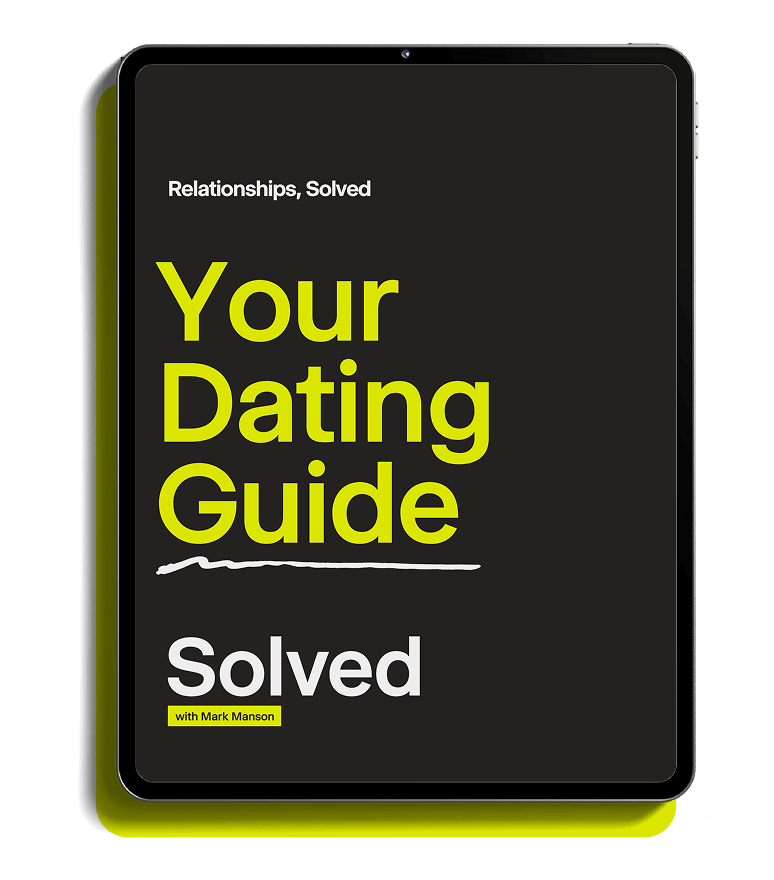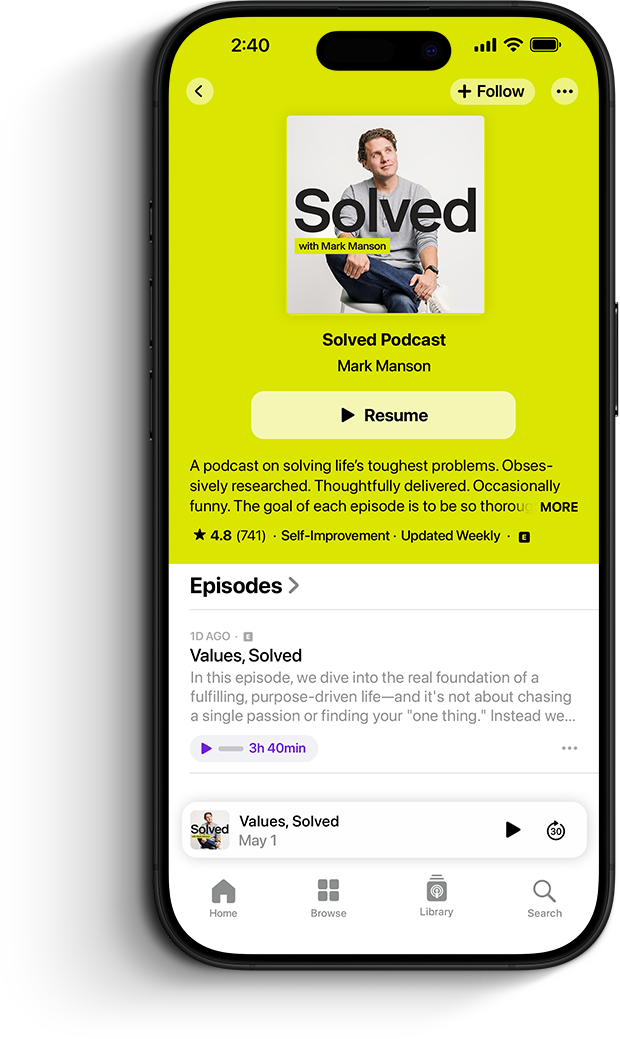Friendship, Solved
Friendship: the most important thing nobody talks about. In this episode of The SOLVED Podcast, Drew and I dig into what makes friendships work, why they fall apart, and why so many of us are struggling to build or keep them as we get older. We’re talking loneliness stats, Darwin’s confusion about cooperation, and the deep emotional mechanics behind being a good friend—and finding one.
From ancient philosophy to game theory, we break down why friendship isn’t just some social nicety—it’s a biological survival strategy. Plus: the modern forces slowly strangling our ability to connect, and exactly what to do about it. You’ll walk away with a clearer sense of what real friendship looks like, how to build it, and how to stop shooting yourself in the foot every time you try.
Episode Notes
Referenced in This Episode
- Robert Axelrod
- Tit for Tat (Game Theory)
- Iterated Prisoner’s Dilemma
- Reciprocal Altruism
- John von Neumann
- Claude Shannon
- Royal Society
- John Gottman
- Bids for Connection (Gottman)
- Aristotle
- Nicomachean Ethics
- Confucianism (Five Relationships)
- Nietzsche on Friendship
- John Bowlby (Attachment Theory)
- Robin Dunbar / Dunbar’s Number
- Mirror Neurons
- Avicenna (Ibn Sina)
- Roseto Effect
- Jonathan Haidt
- Jean Twenge
- Robert Putnam / Bowling Alone
Prefer to read this episode?

Well, you’re in luck. I made you a handy digital reference guide with the sharp recaps you need—because let’s be real, you’ll forget half of this by tomorrow.
It’s free. Just join the podcast mailing list, and I’ll send it over. No spam, no fluff—just the stuff that actually helps.
Hit the button. Get the goods.
Your information is protected and I never spam, ever. You can view my privacy policy here.




